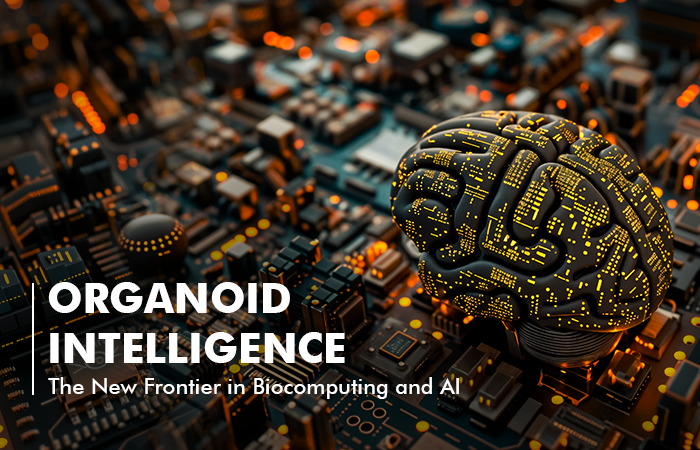Artificial Intelligence (AI) has undeniably revolutionized industries around the globe. From healthcare diagnostics to financial forecasting, AI's capabilities in data analysis, automation, and decision-making have redefined modern technology. But as we look towards the future of AI, a new concept is emerging that could fundamentally change how we think about computing. Organoid Intelligence (OI) blends the power of biological systems with machine intelligence, offering a bold new frontier in biocomputing.
What is Organoid Intelligence?
Organoid Intelligence refers to the use of brain-like organoids tiny, three-dimensional clusters of cells derived from human stem cells that mimic certain aspects of the human brain in computational processes. Unlike traditional AI, which is rooted in silicon and digital logic, Organoid Intelligence leverages living biological systems to perform computations. This fusion of biology and technology not only represents a novel form of computing but also opens the door to understanding and mimicking human cognition in unprecedented ways.
In essence, Organoid Intelligence represents a bridge between living organisms and machines. Biocomputing can push the boundaries of what AI is capable of by tapping into the inherent complexity and adaptability of biological systems, creating opportunities for innovation across a wide range of fields.
The Rise of Biocomputers
At the heart of Organoid Intelligence is the concept of biocomputers, computational systems that use biological components, such as neurons or DNA, to perform tasks. Traditional computers rely on binary code and electrical signals, but biocomputers operate with the nuanced and dynamic processes found in living cells. This allows them to tackle problems in ways that digital systems simply cannot.
Organoid Intelligence is at the forefront of this biocomputing revolution. Biocomputers could tap into new levels of efficiency, adaptability, and complexity in solving real-world problems by harnessing the processing power of living cells. The integration of AI with biocomputing promises a hybrid approach, where the strengths of biological and artificial systems are combined.
Imagine a biocomputer that can learn and adapt like a human brain, coupled with the processing power of Artificial Intelligence. Such a system could revolutionize fields like personalized medicine, neural network development, and even data analysis, where the ability to process complex, unstructured information in real-time is crucial.
Biocomputing and AI: A Symbiotic Relationship
As Organoid Intelligence develops, the relationship between biocomputing and AI becomes increasingly interconnected. Biocomputing introduces a new layer of computational capabilities that can enhance existing AI models, offering a complementary approach to problem-solving.
For example, biocomputers driven by Organoid Intelligence could enable AI systems to become more efficient and dynamic, capable of understanding and processing data in ways that mimic human thought processes. This could result in AI systems that are not only faster but also more intuitive and adaptable and can make decisions with a deeper level of context and understanding.
The symbiosis between biocomputing and AI could also help address some of the ethical and computational challenges currently facing AI. While traditional AI excels at tasks like pattern recognition and data processing, Organoid Intelligence introduces a level of biological computation that brings AI closer to human-like cognition. This fusion could lead to more ethical AI systems, capable of making decisions that are more in line with human values and understanding.
The Future of Organoid Intelligence
The future of Organoid Intelligence is both exciting and uncertain. On the one hand, the potential for biocomputing to outpace traditional AI in certain tasks is immense. The ability to create bio-computers that mirror human cognition could lead to breakthroughs in technology that we can only begin to imagine.
On the other hand, the challenges are significant. Ethical concerns around the use of human-derived organoids in computing must be carefully considered. There are also technical hurdles to overcome, particularly in integrating biocomputing with existing AI systems.
Yet, despite these challenges, the potential for Organoid Intelligence to redefine the IT landscape is vast. As biocomputers and AI continue to evolve, we may find ourselves on the cusp of a new era of technological advancement, one where the line between the living and the digital becomes increasingly blurred.
Organoid Intelligence is not just a new frontier in biocomputing; it represents a fundamental shift in how we approach problem-solving and innovation. As we bring together the best of both biological and artificial worlds, we are paving the way for a future where technology is not just a tool, but an extension of life itself.

